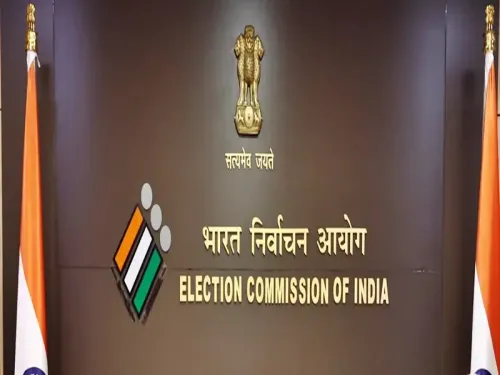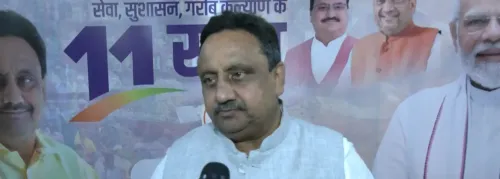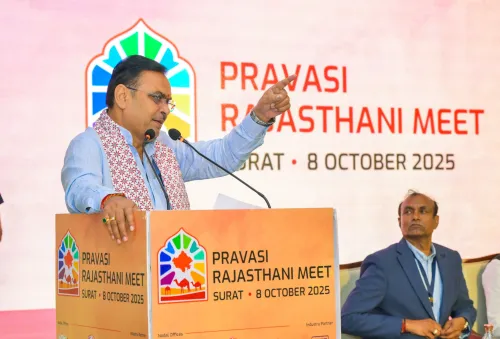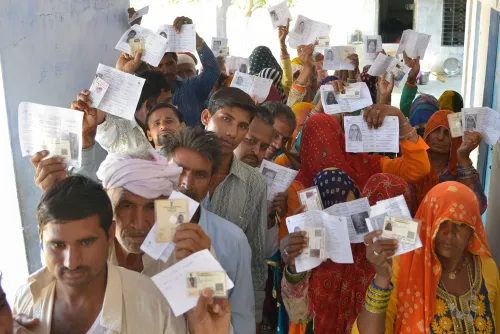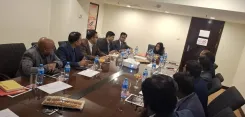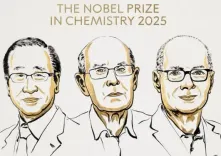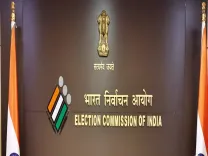Maharashtra's Need for Unity: Saamana on Uddhav-Raj Thackeray Reunion
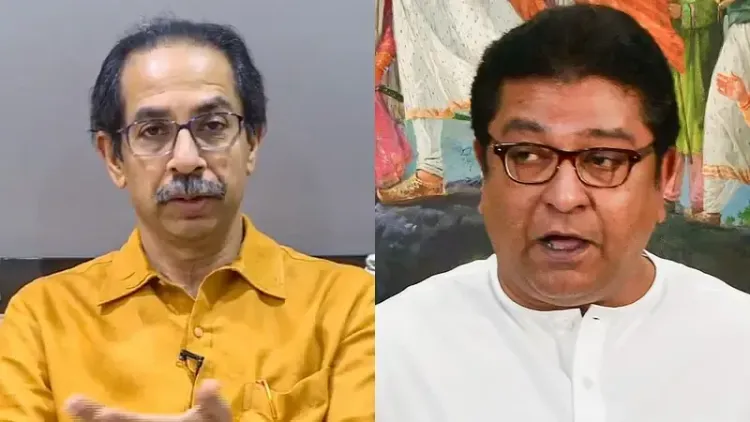
Synopsis
Key Takeaways
- Uddhav and Raj Thackeray should unite for Maharashtra's welfare.
- The BJP's role in sowing division among Marathi people is criticized.
- The potential for reconciliation is seen as essential for the future.
- Marathi unity is vital for the state's prosperity.
- The editorial urges a collective approach to overcome challenges.
Mumbai, April 21 (NationPress) In a robust defense of the reconciliation between the estranged brothers Uddhav Thackeray and Raj Thackeray aimed at protecting the interests of Maharashtra and the Marathi language, the Shiv Sena(UBT) editorial in its publication 'Saamana' on Monday emphasized the necessity for both leaders to act in the state's favor, stating, 'if nectar comes out of poison, Maharashtra needs it'.
'If life is consumed by disputes and conflicts, future generations of Maharashtra will not forgive them,' Saamana remarked.
Criticizing the BJP, the editorial pointed out, 'What more does Maharashtra require? The BJP engages in a 'use and throw' strategy. Modi, Shah, and Fadnavis show no allegiance to the nation; how could they prioritize the state of Maharashtra? Their actions have only spread discord in politics. They are not tasked with cleansing the rivers Krishna and Koyana in Maharashtra; instead, they have plunged everyone into the murky waters of Prayagraj and exploited religion. This peculiar and toxic phase is ongoing, and the Marathi populace of Maharashtra must learn from it and tread cautiously. If nectar emerges from poison, Maharashtra needs it.'
The prospect of Raj and Uddhav Thackeray joining forces for the greater good of Maharashtra has stirred significant political reactions. 'While this development has delighted many, others have reacted with unease. Raj Thackeray's political journey has been convoluted and less successful. After departing from Shiv Sena, he established the Maharashtra Navnirman Sena (MNS). Initially, he garnered substantial public support in municipal and Assembly elections, but his party later encountered setbacks. The BJP, Eknath Shinde, and others relentlessly targeted Shiv Sena using 'Raj's' influence as a shield. This did not yield political gains for Raj's party, but it severely impacted Marathi unity,' the editorial conveys.
'Raj's stance has been against allowing Modi and Shah to step foot in Maharashtra, arguing that they disregard the state's interests. However, he did not maintain that position. The BJP's Hindutva is a facade. BJP ensnared Raj in this illusion, leading to a decline in his political standing. He recently stated in an interview, 'Regardless of the situation, our disputes are trivial compared to more significant matters. Maharashtra is vast, and these conflicts are inconsequential for the existence of a Marathi individual. I find it quite feasible to unite and coexist; it merely requires commitment,' as noted in the editorial.
'Raj's assertions regarding our conflict pertain to Uddhav Thackeray. What kind of conflict is this? It never surfaced. Raj has consistently advocated for the Marathi populace, and Shiv Sena was established to uphold Marathi interests, which Uddhav Thackeray has not forsaken. So, is there a true conflict? Only the BJP, Mindhe (Eknath Shinde), and others have spoken on Raj's behalf, instigating the discord. Therefore, if the BJP and Mindhe are removed, where does the conflict lie? A willingness to unite is essential. Raj's
'Upon Raj voicing his desire, Uddhav Thackeray promptly reciprocated. He has taken a commendable step forward for the broader interest of Maharashtra, asserting that if there are minor disagreements, he is ready to collaborate for Maharashtra's benefit, setting aside all else. This reflects the sentiments of the people of Maharashtra. The dignity of the Marathi people and the welfare of Maharashtra are currently at a low point, yet if Uddhav has expressed a reasonable hope for Raj to no longer associate with Maharashtra's adversaries and keep traitors away, it should not be interpreted as a precondition. Uddhav Thackeray remarked that enemies of Maharashtra should not be allowed to remain at home; this sentiment carries weight,' the editorial explains.
'Amit Shah, Modi, Fadnavis, and Eknath Shinde have targeted the Shiv Sena founder and the 'Hindu hriday Samrat' Balasaheb Thackeray to undermine Maharashtra. Raj Thackeray emerged from the Shiv Sena lineage. Thus, how can we unite with those who betray the mother of Maharashtra and progress collectively for its benefit? This is a fundamental question. Shinde and his faction are the puppets of Modi and Shah. Fadnavis's facade of affection for Maharashtra has been repeatedly unmasked. These individuals have put Mumbai up for grabs, issuing 'tenders' to exploit Maharashtra and handing it over to non-Marathi contractors. In times of crisis, various communities unite in Mumbai, yet the Marathi arrow of unity has been shattered today,' the editorial states.
Referencing the recent demolition of an ancient Jain temple in the Vile Parle suburbs of Mumbai, the editorial remarks, 'Vile Parle was once a bastion of Marathi culture, but following the BrihanMumbai Municipal Corporation's (BMC) action against a Jain temple, thousands of Jain brothers mobilized and organized a march, compelling the transfer of municipal officials. In Mumbai, individuals from diverse castes and religions come together, supporting business-oriented parties like the BJP, indicating a transformation that resonates with the Marathi populace in Maharashtra.'
'The BJP and its commercial allies recognize that if the unity of the Marathi people weakens, Mumbai could be severed from Maharashtra. Hence, they have persistently attempted to erode this Marathi unity, which has historically been their advantage. They have also attacked Shiv Sena, the stronghold of Marathi unity, employing various tactics.
'The BMC elections have been overdue for four years. Tulsi Gabbard, residing in Washington, has elucidated how the BJP and its business allies secured victory in the Maharashtra Assembly. Undoubtedly, only the Marathi people possess the resolve and strength to confront these traitors. Consequently, the Marathi community must unite. Raj Thackeray has grasped the significance of this unity, and Uddhav Thackeray has responded with an open mindset,' concludes the editorial.
This political shift has unsettled those betraying Maharashtra. The prospect of the two 'brothers' reconciling has instilled fear in many and provoked irritation, while some feign excitement, proclaiming, 'Wow, wonderful! It would be fantastic if both Thackerays united,' yet this façade of joy among Maharashtra's betrayers is insincere. Maharashtra should pursue its own agenda,' the editorial wraps up.

